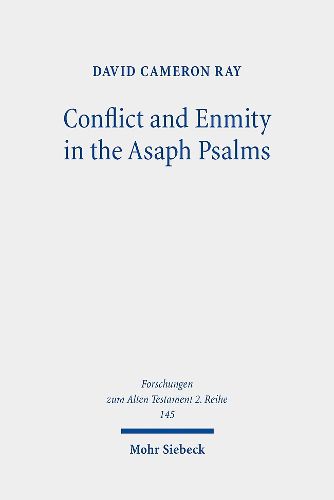Readings Newsletter
Become a Readings Member to make your shopping experience even easier.
Sign in or sign up for free!
You’re not far away from qualifying for FREE standard shipping within Australia
You’ve qualified for FREE standard shipping within Australia
The cart is loading…






David Ray examines the extent to which the Asaph Psalms constitute a coherent collection through its ubiquitous motif of conflict. A binary relational model and semantic roles at discourse level are used to uncover underlying power dynamics in the text. Initially presenting a supposedly innocent collective as fixated on the presence of its opponent while God is perceived as absent, the psalmists then focus on the failure of different generations to adhere to covenant obligations, crystallised in divine judgment. The Asaph Psalms closes with a sapiential outcome, wherein the collective expresses dependence on God, anticipating divine intervention against God's own ingathered heavenly and earthly opponents. Ray configures a pattern of conflicts consistent with Deuteronomistic-informed pastoral teaching, namely, to follow God's ways, recognise complicity in suffering, and place complete trust in the warrior-judge God.
$9.00 standard shipping within Australia
FREE standard shipping within Australia for orders over $100.00
Express & International shipping calculated at checkout
David Ray examines the extent to which the Asaph Psalms constitute a coherent collection through its ubiquitous motif of conflict. A binary relational model and semantic roles at discourse level are used to uncover underlying power dynamics in the text. Initially presenting a supposedly innocent collective as fixated on the presence of its opponent while God is perceived as absent, the psalmists then focus on the failure of different generations to adhere to covenant obligations, crystallised in divine judgment. The Asaph Psalms closes with a sapiential outcome, wherein the collective expresses dependence on God, anticipating divine intervention against God's own ingathered heavenly and earthly opponents. Ray configures a pattern of conflicts consistent with Deuteronomistic-informed pastoral teaching, namely, to follow God's ways, recognise complicity in suffering, and place complete trust in the warrior-judge God.